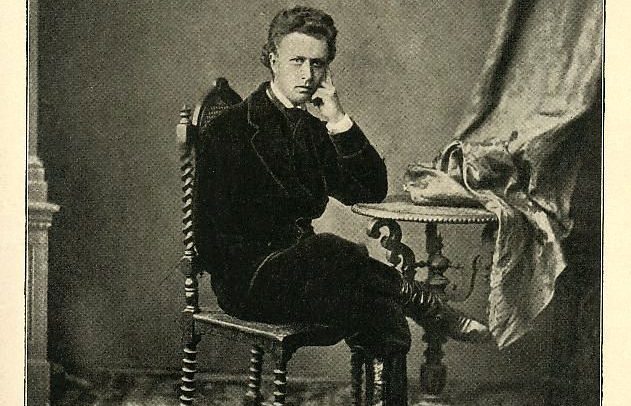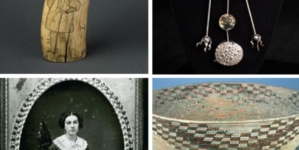Aristocratic identity today risks being misunderstood or reduced merely to ancestry. Yet, for many descendants of historical families, it remains a source of inspiration—a call to live with honor, resilience, and purpose. Rooted in values such as personal growth, integrity, and service to society, this heritage challenges individuals to go beyond titles and embrace a responsibility that shapes their lives and communities in the modern world. We talked to Count Pál Zichy, president of the Association of Hungarian Historical Families, about how to fulfill your calling through being a descendant of nobility.
Since 2020, you have served as the president of the Association of Hungarian Historical Families (MTCSE). What is the organization’s mission, and what are its current goals?
The Association was founded in 1994, over 30 years ago, with the goal of reconnecting members of Hungary’s old noble families—many of whom were scattered or silenced during the communist era. Our primary aim is to provide opportunities for young descendants of these families to meet, connect, share information, and rediscover their heritage. It is less about constructing family ties and more about uncovering them, while also building new friendships.
This founding purpose remains unchanged to this day. Our main activity continues to be the organization of events that help our members get to know one another and explore their shared roots. As new members join, we aim to expand and strengthen this community.
We also place emphasis on cultural programming—club evenings and public lectures on a wide variety of topics. While history, particularly Hungarian history, is often the focus, we have hosted talks ranging from dress codes and etiquette (like our upcoming lecture on October 13) to topics as diverse as dog breeding and marine biology. This is part of our effort to preserve the intellectual traditions of the historical Hungarian aristocracy, which placed great value on broad humanistic education and multilingualism.
We want to continue this tradition in a modern way—by offering our members and guests opportunities to broaden their horizons.
We also serve as a reference point when it comes to protecting the authenticity of noble family names. Unfortunately, there have been increasing instances of people misusing these names for social or financial gain. Our association has a three-member genealogical committee that reviews new applicants and can issue statements verifying their heritage, making us a credible source in the absence of any legal framework protecting noble names today.
That said, it is important to clarify that we do not confer noble titles. There have been groups in the past calling themselves “orders of nobility” who handed out fake titles for money—this is nonsense. Nobility as a legal status no longer exists in Hungary. Our focus is on preserving and honoring historical truth and identity.
How do you maintain relations with the descendants of former Hungarian noble families who emigrated abroad?
We absolutely strive to maintain those connections. The association welcomes members regardless of where they live today—current national borders are not a limiting factor. We have members joining from all over the world, including Argentina, Venezuela, France, and Germany.
Many of them are rediscovering their Hungarian identity through genealogy and reconnecting with their heritage. Some become full members, while others simply attend our public events. We try to create a welcoming environment for all of them. Sometimes it is through personal contacts, other times they find us through our website or Facebook page.
Even if someone no longer speaks the language—perhaps their grandfather emigrated after WWII—if they still hold onto fragments of Hungarian identity, we can offer them meaningful experiences that strengthen that connection. In doing so, we create friends and ambassadors for Hungary who form personal ties to the country, rather than judging it from a distance or through media headlines.
Interestingly, these émigré families often preserved values and cultural elements that were lost during the communist era—what I call “identity time capsules.” When they come back, they bring with them a piece of pre-1945 Hungary, and we see this as a valuable contribution to our community.
For full membership, we require a personal appearance at our General Assembly, so they need to travel to Hungary. But many do, especially for larger events like our annual ball.
Your family, the Zichys are also connected to another organization specifically dedicated to preserving their own heritage. What is the exact focus of your foundation’s work?
My father (Dr. Mihály Zichy, historian – editor’s note) and I founded the Zichy Foundation two years ago. The foundation’s focus is similar to the association’s, but narrower—it concentrates specifically on preserving the Zichy family’s intellectual and architectural heritage.
For example, last year we organized the Géza Zichy Memorial Year. He was a pianist and composer who lost his right arm in a hunting accident as a child but became internationally renowned playing with only his left hand. He donated all his concert earnings to charity He even wrote a book titled “The Man with One Hand.” during World War I to inspire wounded soldiers.
We reissued that book and hosted a series of concerts featuring his compositions. One of our foundation board members, also a descendant, gave lectures on his life. It was a deeply meaningful project, especially as 2024 marked the 100th anniversary of his death.
On the architectural side, we support efforts to restore Zichy properties. For instance, in Nágocs (Somogy County), one of our relatives has been painstakingly restoring a run-down Zichy castle for nearly 20 years. Our foundation has provided both financial and intellectual support. We are also organizing a family history exhibition there, and we are planning to renovate the crypt of my great-great-grandfather, Zichy János, in Soponya (central Hungary).
Our goal is not only to preserve these sites but also to provide a platform for family members to reconnect through events—even though the foundation is not a formal family association. Still, the events serve as useful opportunities to bring people together.
Another activity I would like to mention is that we also engage in historical education. My father, using the personal experience of my grandfather who was imprisoned in the Recsk forced labor camp during the communist regime, has begun visiting schools to talk about that period of history. Our foundation helps organize these lectures, starting with the Saint Gerard High School in Budapest. It is crucial that young people understand this chapter of 20th-century Hungarian history, which is often glossed over.
In November, the MTCSE will host a meeting of delegates from the European umbrella organization for noble associations, known as CILANE, at the Hungarian Academy of Sciences. How does such a gathering take place, and what kind of relationship does Hungary have with this organization?
Yes, MTCSE has been a member of CILANE—an umbrella organization of European noble family associations—for 20 years. Each country has one member association recognized for upholding strict genealogical standards. In our case, despite the official abolition of nobility in Hungary in 1947, we continue to verify lineage through rigorous historical processes, much like the pre-1945 practices.
This year, we are honored to host the annual CILANE delegate meeting in Budapest. It is a great opportunity to present our association and show a different face of Hungary to the international community—one that values cultural continuity and historical identity.
We will also be hosting a formal ball at the Stefánia Palace this weekend, which will be a highlight. The ball has both Hungarian and international character: Hungarian cuisine and folk dance performances, but attendees from across Europe—some are Hungarian expatriates, others are members of foreign associations. It is a way to showcase not just tradition, but that our community is alive and dynamic.
CILANE itself does not organize large events; it coordinates between its member organizations, helping them align on membership practices, promote each other’s activities, and ensure quality and credibility. Recently, Poland joined the network, and we helped evaluate their application.
There is also a youth division that facilitates exchange programs and student-level engagement between countries.
How do you live with an aristocratic heritage in the 21st century? What does this identity mean to you today?
That is a very relevant question, and I am glad you asked. Today in Hungary, nobility no longer exists as a legal category—and I think that is as it should be. But noble identity still holds meaning, and it can be interpreted in different ways.
The danger lies in misusing this heritage. If someone struggles with personal frustrations or insecurities, they might cling to their ancestry in a way that makes them feel superior to others. That is a toxic path, and it is not what this identity should be about.
For me—and for many others—it is about responsibility. It means understanding who my ancestors were, what values they stood for, and how I can embody those values today, and ask what does this legacy inspire in me? How can it guide the choices I make in my own life, in my work, in my way of thinking? Not in titles or privileges, but in conduct, service, and culture. It is about being educated, grounded, and contributing to society.
Within our community, Christian ethics are paramount. And love of country, too. You will not hear people here bashing Hungary or complaining bitterly about everything. That is simply not the tone. This is a space for people who care deeply about their homeland — and who value its traditions. So yes, noble identity has a place in the modern world—but only when it is approached with humility and purpose.
Related article
Virtuoso One-Handed Pianist, Count Zichy Passed Away 100 Years Ago

Through sheer willpower and a zest for life, he perfected his piano skills.Continue reading
Featured image: Hungary Today
The post Reviving Nobility in the Modern World: A Conversation with Count Pál Zichy appeared first on Hungary Today.
Source link






























